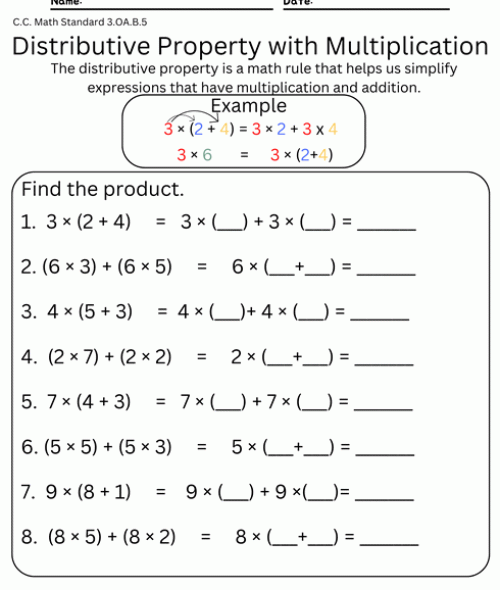The Distributive Property of Multiplication
What is the distributive property of multiplication?
The distributive property is a math rule that helps us simplify expressions that include both multiplication and addition.
Here’s what I mean:
“3 + 4 x 2” is an example of an expression. We can make this expression easier to understand by first multiplying the 4 and 2, and then adding the result to the 3.
3 plus 4 times 2 equals 3 plus 8, which equals 11.
So, the distributive property lets us turn “3 + 4 x 2” into “3 + 8,” which is easier to solve.
Any number of factors and addends can be used with the distributive property. For instance:
(5 + 2) times 3 is equal to 5 times 3 plus 2 times 3, which is equal to 15 plus 6, which is equal to 21.
Grade often used by:
3rd Grade
Subject:
Math | Operations and Algebraic Thinking | Distributive Property
Standards:
Common Core State Standard:
3.OA.B.5


